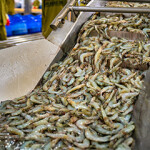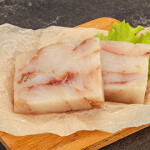Mislabeling an issue for species not covered under SIMP, US study by Oceana finds
A new study released by Oceana, following up on previous work the marine conservation organization has done on seafood fraud, has found that one in every five fish it tested in the United States was mislabeled.
After studying 400 samples from more than 250 locations in 24 U.S. states and the District of Columbia between March and August 2018, focusing on seafood not included as part of the Seafood Import Monitoring Program (SIMP), Oceana found that substitutions of more valuable and rare species for less valuable or more commonly available species was commonplace.
“After testing nearly 2,000 samples from more than 30 states since we began our investigations into seafood fraud, it never ceases to astonish me that we continue to uncover troubling levels of deception in the seafood we feed our families,” Kimberly Warner, an author of the report author and a senior scientist at Oceana, said in a press release “For the sake of ours and the ocean’s health, more needs to be done to tackle this problem.”
SIMP, created under the Consolidated Appropriations Act of 2018 and managed by U.S. Customs and the National Oceanic and Atmospheric Administration (NOAA), is an electronic traceability program designed to reduce fraud in the import of seafood into the United States. SIMP requires importers to maintain records for shrimp, abalone, Atlantic cod, blue crab, dolphinfish, grouper, king crab, Pacific cod, red snapper, sea cucumber, sharks, swordfish, and tunas, detailing how they were caught or harvested and tracking the products until they reach the U.S.
In conjunction with the release of the new study, Oceana called for the program to be expanded to all seafood imported into the U.S.
“It’s clear that seafood fraud continues to be a problem in the U.S., and our government needs to do more to tackle this once and for all,” said Beth Lowell, Oceana’s deputy vice president of U.S. campaigns,” Beth Lowell, Oceana’s deputy vice president of U.S. campaigns, said in a press release. “Seafood fraud ultimately deceives consumers who fall victim to a bait and switch, disguises conservation and health risks, and hurts honest fishermen and seafood businesses. Seafood traceability – from boat to plate – is critical to ensure that all seafood sold in the U.S. is safe, legally caught and honestly labeled.”
In its study, Oceana found that hogfish was commonly replaced by sutchi catfish or spinycheek grouper; slipper lobster was replaced by giant freshwater prawns; sea bass was substituted for with giant perch and Nile tilapia; Alaskan halibut was swapped out for Greenland turbot; Dover sole was switched out for walleye; redfish was traded for channel catfish; black drum was exchanged for sheepsheads; and Florida snapper was replaced by lavender jobfish. Of the species tested, Oceana found sea bass and snapper had the highest rates of mislabeling, at 55 and 42 percent, respectively.
The study found 21 percent of its samples were mislabeled, and that one out of every three establishments it bought seafood from was engaged in mislabeling. It found 26 percent of seafood it purchased in restaurants was mislabeled, versus 24 percent of seafood it purchased from smaller markets 12 percent of samples it purchased at larger chain grocery stores.
Reasons Oceana found for the mislabeling included stores and restaurants selling seafood with generic names like “sea bass” and “catfish” disguised lower-value species or masking health and conservation risks, and selling imported seafood as regional delicacies or favorites, “fooling consumers into thinking their seafood is locally sourced,” Oceana said.
As of 7 March, the study had been covered by national media, including CNN, ABC, and National Geographic.
Commenting to CNN, National Fisheries Institute Vice President of Communications Gavin Gibbons said
"With regard to fraud, honestly, it is fairly simple. Yes, there's a complex global supply chain, like there is for so many products, but the reality is, if something is mislabeled or there's some kind of species substitution, it is fraud plain and simple, and it is just illegal," Gibbons said. "You would not accept this in any other scenario, and you shouldn't accept it in seafood."
Gibbons said the solution to the issue is not more regulation, but rather better enforcement of existing laws.
Oceana has conducted several previous studies that have found instances of seafood mislabeling. A 2017 study of seafood bought in Ottawa, Ontario, Canada found nearly half the samples tested were mislabeled. Previous studies found similar mislabeling issues in Los Angeles and South Florida.
And in December 2018, the New York Attorney General’s office discovered “rampant” seafood mislabeling at several grocery chains operating in the state. Its report found 27.6 percent of species sold as “wild” salmon were mislabeled, oftentimes being substituted for farmed salmon; Approximately 87.5 percent of lemon sole and 67 percent of red snapper was also discovered to be mislabeled.






Share